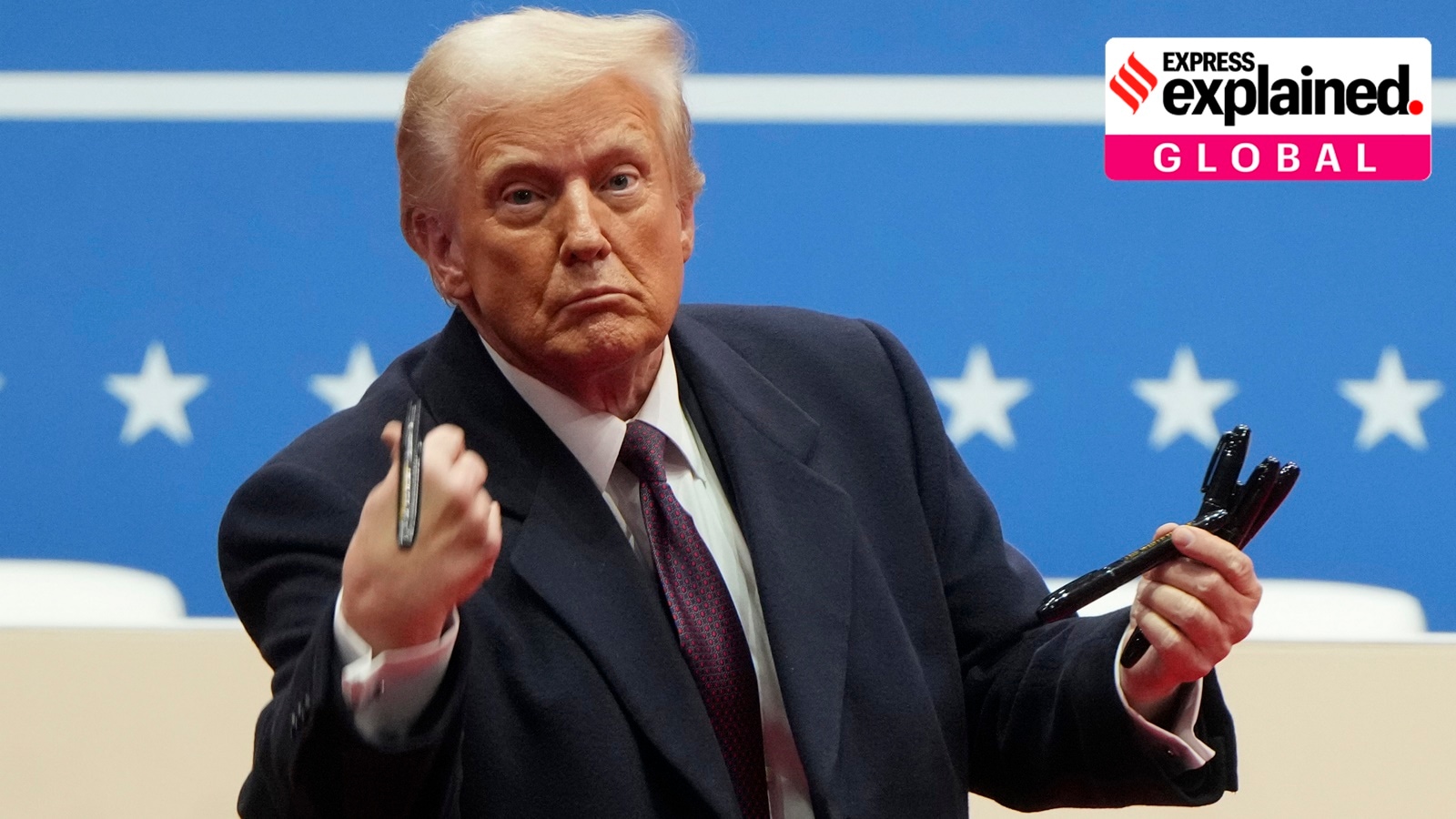 |
|
President Donald Trump's controversial executive order aiming to abolish birthright citizenship in the United States has ignited a firestorm of legal challenges and constitutional debate. The order, signed on his first day in office, attempts to redefine the scope of the Fourteenth Amendment's citizenship clause, a move that legal experts widely predict will face significant hurdles in the courts. The core of the issue lies in Trump's interpretation of the phrase "subject to the jurisdiction thereof," arguing that it excludes children born to undocumented immigrants. This narrow interpretation directly clashes with the long-standing understanding of birthright citizenship in the US, a principle rooted in the aftermath of the Civil War to ensure citizenship for children born to formerly enslaved people. The order’s legal foundation rests on a highly contested reading of the Constitution, a reading that has been challenged by numerous legal scholars and civil rights organizations.
The legal battle surrounding Trump's executive order is already underway. The American Civil Liberties Union (ACLU), along with other immigrant and civil rights advocates, swiftly filed lawsuits challenging the order's constitutionality. These lawsuits argue that the order violates the established legal precedent and the clear language of the Fourteenth Amendment. The central argument of the lawsuits emphasizes that the amendment's text is unambiguous, granting citizenship to all persons born within the United States, with limited exceptions that do not align with Trump's interpretation. The courts will need to determine whether Trump's administration has the authority to redefine such a fundamental aspect of citizenship through an executive order, as opposed to requiring a constitutional amendment, a far more arduous legislative process.
The implications of Trump's executive order extend far beyond the immediate legal challenges. A successful elimination of birthright citizenship would drastically alter the demographic landscape of the United States and have profound impacts on millions of individuals. The order specifically targets children born to undocumented immigrants, potentially leading to a surge in deportations and family separations. The economic and social consequences would be substantial, affecting not only the families directly impacted but also the broader society. Furthermore, the executive order raises serious concerns about due process and equal protection under the law, fundamental principles of the American legal system. Critics argue that Trump’s actions set a dangerous precedent, allowing future administrations to circumvent established legal norms and undermine fundamental rights through executive fiat.
The historical context of the Fourteenth Amendment is crucial to understanding the ongoing debate. Ratified in 1868, the amendment was a pivotal piece of legislation designed to ensure equal rights and citizenship for formerly enslaved people and their descendants. It was intended to overcome the legacy of slavery and establish a more just and equitable society. Trump's attempt to reinterpret the amendment's language to restrict birthright citizenship is therefore seen by many as a direct assault on the very foundation upon which this post-Civil War era guarantee was built. The argument that the amendment did not intend to grant citizenship universally ignores the broader context and the legislative intent behind the amendment's creation.
The political ramifications of Trump's action are equally significant. The move is a clear signal of the administration's hardline stance on immigration. It represents a continuation of Trump's broader immigration policy, which has consistently focused on stricter enforcement and border control measures. While Trump's party holds a majority in both houses of Congress, the path toward amending the Constitution is extremely challenging, requiring supermajorities in both chambers and ratification by three-quarters of the states. Therefore, the immediate and more likely outcome hinges on the legal challenges and their progression through the judicial system, as the possibility of a constitutional amendment remains highly improbable in the near future.
In conclusion, President Trump's executive order on birthright citizenship is a highly controversial and legally fraught action with wide-ranging implications. The order directly challenges the established legal interpretation of the Fourteenth Amendment, sparking immediate lawsuits and setting the stage for a prolonged legal battle. The outcome will not only have significant consequences for undocumented immigrants and their families but will also profoundly impact the future of American immigration policy and the interpretation of a fundamental constitutional right. The political climate surrounding the issue is deeply divided, and the ensuing legal proceedings will likely shape the national dialogue on immigration for years to come. The historical context and the potential implications for both individual lives and the structure of American society render this executive order one of the most consequential acts of the Trump administration.
Source: Trump signs executive order to end US birthright citizenship. Can he do it?
